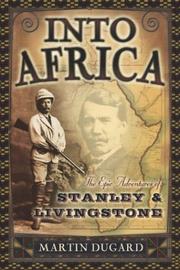David Livingstone
David believed that God was calling him to be a medical missionary, and the more he prayed about it the more he felt he should become a missionary.
David decided to go to college. After he made some quick calculations he discovered that if he saved every spare penny he earned at the mill for three years he could go to Anderson College for a term, which was the cheapest College in Glasgow that he could find.
When he got to college he started studying right away. His main goal was to become a missionary in China and to also become a doctor. He finished term one in Anderson College and headed back home. When the time came for term two he did not have enough money to go back to College, so his older brother gave him enough money as was the custom in those days. After finishing his terms in Anderson College he was sent for further training at the London Missionary Society offices in London. After training some more and having occasional mishaps, like forgetting a sermon, David was ordained as a pastor and a missionary. But the problem was that he could not go to China because of the Opium Wars. So after talking to another missionary who was stationed at Kuruman in Africa he decided to go to Africa.
 David Livingstone mapped most of the unexplored places in Africa. And he learned there languages but he had a few mishaps with some of the languages. When he was preaching a sermon about sin he discovered later that he was preaching against cow dung. Many of the tribes he visited had problems with lions eating their livestock. Once at Kuruman David got attacked by a lion when he helped the tribesman protect their livestock. The lion had pinned him to the ground and made a huge gash in his arm, he also broke a few bones. He was rescued by his African interpreter.
David Livingstone mapped most of the unexplored places in Africa. And he learned there languages but he had a few mishaps with some of the languages. When he was preaching a sermon about sin he discovered later that he was preaching against cow dung. Many of the tribes he visited had problems with lions eating their livestock. Once at Kuruman David got attacked by a lion when he helped the tribesman protect their livestock. The lion had pinned him to the ground and made a huge gash in his arm, he also broke a few bones. He was rescued by his African interpreter.
He went back to England and wrote a book describing his adventures and explorations and became famous. He met with Queen Victoria and talked with her about his explorations. He told her that when he was in Africa some of the Africans had asked him how many cows she had, and that why had he never met his big Chief. She laughed and was amused.
He married Mary Moffat, daughter of the director of the Kuruman mission station and had six children and didn’t spend much time with them. Once one of his daughters did not recognise him.
David went back to Africa and soon people thought that he was dead. So an American newspaper the New York Herald sent Henry Stanley an explorer to find David. He found him in Ujiji on the coast of lake Tanganyika, and greeted him with the famous line “Doctor Livingstone I presume”.
David also hated the slavery that was going on around the area he was traveling in.
I like David Livingstone because he was an explorer who never gave up and also because he found unknown places such as “The smoke that thunders” (Victoria falls) and Lake Tanganyika.
Essay by Tiger
No comments:
Post a Comment